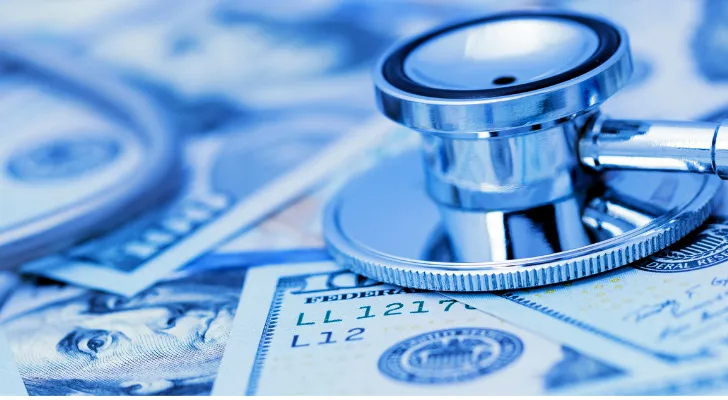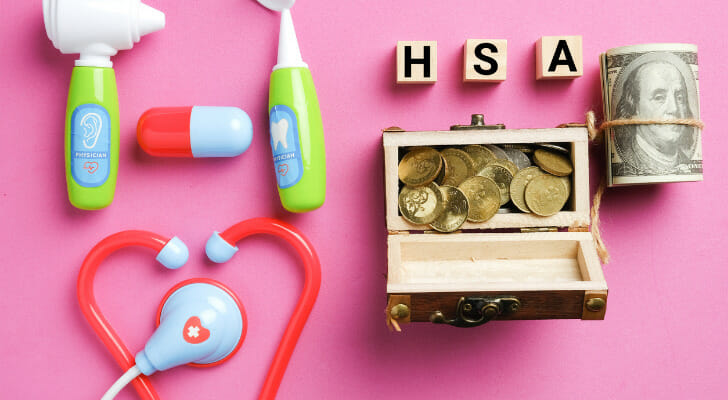Health Savings Accounts (HSAs) offer a tax-advantaged way to save for medical expenses, but knowing what qualifies as HSA-eligible expenses can be crucial for maximizing their benefits. These accounts are designed to help individuals with high-deductible health plans manage out-of-pocket healthcare costs more effectively. However, not every medical expense qualifies, and using HSA funds for non-eligible expenses can result in penalties and taxes. Generally, eligible expenses include a wide range of medical, dental, and vision care costs, such as doctor visits, prescription medications, and even some over-the-counter items.
For help planning how to use your HSA or any other financial questions, consider working with a financial advisor.
What Is a Health Savings Account?

A health savings account is a tax-advantaged plan that’s designed for healthcare and medical expenses. These accounts are associated with high-deductible health plans, which can be offered through employers. You may also choose to purchase a high-deductible health plan if you’re self-employed.
When you open an HSA, you’ll receive a debit card that’s linked to your account. You can use this card to pay for healthcare expenses. HSAs have annual contribution limits. The amount you can contribute is determined by whether you have individual or family coverage. For 2025, the HSA contribution limits are as follows:
- $4,300 for individual coverage ($4,150 in 2024)
- $8,550 for family coverage ($8,300 in 2024)
The IRS adjusts HSA contribution limits regularly to account for inflation. If you have an HSA at work, both you and your employer can make contributions up to the annual limit. The money in your HSA can earn interest, depending on how you choose to invest. Mutual funds and exchange-traded funds (ETFs) are two investment options you might have.
So why would someone save in an HSA? The simple answer is tax benefits. A health savings account offers triple the tax benefits, in that:
- Contributions are tax-deductible
- Savings grows tax-deferred
- Withdrawals for HSA-eligible expenses are tax-free
The money you save in an HSA each year rolls over until you need it. That means unlike a Flexible Spending Account (FSA), an HSA is not use it or lose it.
If you take money out of an HSA before age 65 for any reason other than healthcare, a 20% tax penalty applies. You’ll also owe income tax on the distribution. Once you reach age 65, you can withdraw money from a health savings account for any reason, regardless of whether you use the funds for healthcare. You’ll just have to pay ordinary income tax on those distributions.
What Are HSA Eligible Expenses?
HSA-eligible expenses are ones the IRS has deemed as qualified. That means you can use money in your HSA to pay for those expenses without it being considered a taxable distribution. Expenses related to medical care, dental care and vision care fall under this umbrella.
Many of the expenses that are considered HSA-eligible are ones that your insurance might not cover. The money in your HSA can be used to pay for expenses for yourself if you have individual coverage or your spouse and any dependents you have if you’re enrolled in a family plan.
Is every expense HSA eligible? The answer is no, there are some things you can’t pay for using money in a health savings account. Overall, however, the list of HSA-eligible expenses is fairly extensive.
HSA Eligible Expenses

It’s important to check with your healthcare plan administrator to find out exactly what’s covered if you have an HSA. That can help you avoid unexpected medical bills later. Here are 45 of the most commonly covered expenses under the Internal Revenue Code:
- Abortion
- Acupuncture
- Ambulance fees
- Artificial limbs and teeth
- Bandages
- Birth control pills
- Body scans
- Breast pumps and supplies
- Breast reconstruction surgery
- Chiropractor treatments
- Contact lenses
- Copays and coinsurance
- Crutches
- Dental treatment
- Diagnostic services
- Drug addiction
- Drugs and medicines
- Eye exams
- Eyeglasses
- Eye surgery
- Fertility enhancement
- Guide dogs and other service animals
- Hearing aids
- Home care
- Lab fees
- Lactation expenses
- Long-term care
- Long-term care insurance premiums
- Nursing care
- Optometry services
- Oxygen
- Physical exams
- Pregnancy tests
- Prosthetics
- Psychiatric care
- Special education
- Sterilization
- Surgery
- Transplants
- Vasectomy
- Vision correction
- Weight loss surgery
- Wheelchairs
- Wigs
- X-rays
It’s important to note that expenses you incur before you enroll in an HSA are not eligible. Depending on the laws in your state, your expenses may not become eligible until after you’ve made your first contribution to a health savings account.
CARES Act HSA Eligible Expenses
The Coronavirus Aid, Relief and Economic Security (CARES) Act of 2020 expanded the list of includible expenses for HSAs. Under CARES Act rules, you can also use your HSA to pay for the following:
- Acne treatment
- Allergy medications
- Aspirin
- Band-aids
- Breathing strips
- Cold and cough medicine
- COVID-19 tests
- Eye drops
- Heartburn medicine
- Ibuprofen
- Liners
- Menstrual cups and pads
- Nasal spray
- Period panties
- Sleep aids
- Tampons
- Thermometers
The CARES Act also added items designed to reduce the spread of COVID, including hand sanitizer, hand wipes and masks.
What Expenses Are Not HSA Eligible?
The IRS does specify certain health-related costs that aren’t considered to be qualified medical expenses. Some of the things you can’t use your HSA money to pay for without a tax penalty include:
- Babysitting, childcare and nursing services for a healthy child
- Controlled substances
- Cosmetic surgery
- Diaper services
- Electrolysis
- Funeral expenses
- Hair transplants
- Illegal treatments or surgeries
- Maternity clothes
- Swimming lessons
- Teeth whitening
- Veterinary expenses
These same expenses are ones that you can’t use to claim a deduction for qualified medical expenses.
Do You Need a Doctor’s Note for HSA Eligible Expenses?
You may need an official diagnosis from a physician to use your HSA to cover certain healthcare expenses without a tax penalty. If you’re unsure what the requirements are, it’s a good idea to check with your insurer first to see what’s covered and when a doctor’s note may be necessary. Some of the HSA-eligible expenses that may require a diagnosis include:
- Breast implant removal procedures
- Cosmetic procedures scheduled to meet a specific healthcare need
- Electric toothbrushes
- Home and vehicle modifications that may be necessary to accommodate a person with disabilities
- Massage therapy
- Mattresses and special bedding
- Meals and lodging associated with medical treatments
- Vitamins and supplements
- Weight loss programs
Documenting all of your medical expenses is always a good idea if you’re worried about the IRS raising questions later about how you’ve spent HSA funds. For example, if you travel for medical care you may want to keep a travel log showing your expenses for meals and lodging. You can also hold on to copies of receipts for any expenses you pay.
Bottom Line
Understanding HSA-eligible expenses is crucial for anyone looking to maximize the benefits of a Health Savings Account. These accounts offer a tax-advantaged way to save for medical expenses, but knowing what qualifies as an eligible expense can significantly impact your financial planning. Generally, HSA funds can be used for a wide range of medical costs, including doctor visits, prescription medications, and even some over-the-counter drugs.
Retirement Planning Tips
- Consider talking to your financial advisor about how to manage your HSA and make the most of the money you’re setting aside. Finding a financial advisor doesn’t have to be hard. SmartAsset’s free tool matches you with vetted financial advisors who serve your area, and you can have a free introductory call with your advisor matches to decide which one you feel is right for you. If you’re ready to find an advisor who can help you achieve your financial goals, get started now.
- While an HSA isn’t specifically designed to be used as a retirement savings tool, you could use one of these accounts to supplement your retirement income. Remember, the money in your HSA carries over from year to year. If you stay healthy in retirement, you could withdraw money from your HSA to pay for day-to-day living expenses or other costs. Just keep in mind that you’ll pay income tax on those distributions.
Photo credit: ©iStock.com/All_About_Najmi, ©iStock.com/Viorika, ©iStock.com/shapecharge
